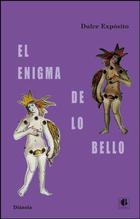The pleasure of beauty always comes from seeing, from listening; it always originates from the senses ("aesthetics", in fact, comes from the Greek term aísthesis: sensation) and it is the sensations themselves and their associations that delight by themselves, causing in us a pleasure that is difficult to separate from: it would be said that there has been a suspension of the will, as if we were 'enchanted by the sirens'. The experience of beauty implies a contemplative attitude, different from the normal, practical attitude towards things, with which we stop thinking about its usefulness or purpose and concentrate only on what we have before us, isolating it from everything else ( in art, that is the function that frames, pedestals or the stage fulfill: isolate). The pleasure of beauty is, therefore, free and disinterested, since it is not the object itself that pleases, but its imag...read more
All book titles by this author
|
Title |
Price | ||
|---|---|---|---|
|
|
El enigma de lo bello Author: Dulce Expósito Publisher: Casus Belli Collection: Casus Belli: Diánoia |
$380.00 |
Shopping cart
Loading cart
Important notices
|
|
Recordando a André Rouillé: Su legado en la fotografía André Rouillé 1948 - 2025 |
|
|
Libros de filosofía y co. Disponibles en Librería Herder |
|
|
Revista Filosofía & Co. nº 9 Nueva revista de filosofia divulgativa y actualidad |
|
|
"Espacios de la filosofía" - Mauricio Beuchot - Novedad Herder México |
|
|
Revista Filosofía & Co. nº 8 Nueva revista de filosofia divulgativa y actualidad |
Pay safely with:


In the webshop
New
|
|
La profecía en la antigüedad 70531 $900.00 -0.00% $900.00 |
|
|
Simone Weil y la cuestión judía 70530 $470.00 -0.00% $470.00 |
|
|
Medios calientes 70159 $400.00 -0.00% $400.00 |
|
|
El bestiario de Michel Foucault 70404 $749.00 -15.00% $636.65 |
|
|
Cantan los ángeles, rugen los monstruos 69202 $510.00 -0.00% $510.00 |
In the press
Promotions
|
|
Panorama A1.1, Deutsch als Fremdsprache Übungsbuch 36726 $235.00 -35.00% $152.75 |
|
|
Diccionario de términos filológicos 70241 $900.00 -25.00% $675.00 |
|
|
Verbos conjugados $600.00 -25.00% $450.00 |
|
|
Prosa y poesía. Homenaje a Gonzalo Sobeja 70242 $1,755.00 -25.00% $1,316.25 |
|
|
Lingüística española aplicada a la terapia del lenguaje 70239 $300.00 -25.00% $225.00 |





